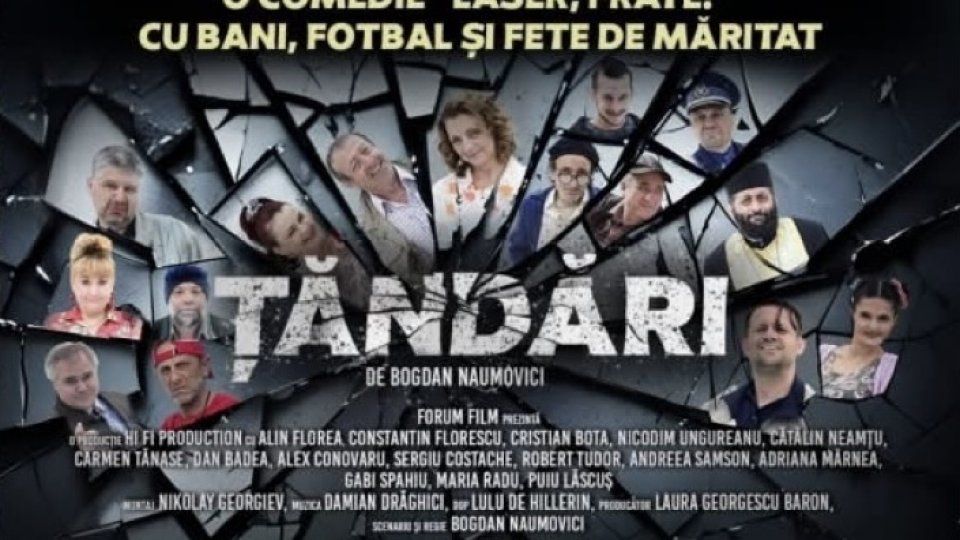US translator Sean Cotter
The English version of the early 20th century Romanian novel Rakes of the Old Court was brought out in 2021 in the USA.

Corina Sabău, 03.09.2022, 14:00
The English version of the early 20th century Romanian novel Rakes of the Old Court was brought out in 2021 in the USA. The translator of the novel is Sean Cotter. The translator teaches Comparative literature and Translation studies with the University of Dallas in Texas. Sean Cotter specializes in Modernism, and in the Theory and History of translation. Sean Cotter also specializes in the literature of South-East Europe. Mateiu Caragiales novel, Rakes of the Old Court, was brought out in 1929. It is arguably one of Romanian literatures most relevant novels: lots of aficionados revolved around the book. According to a classification compiled by the Cultural Observer magazine in the early 2000, Rakes of the Old Court was rated as the best novel in Romanian literature. We sat down and spoke to Sean Cotter about the translation process proper, which was completed in eleven years. We also spoke about Sean Cotters most recent translations and about how he approached Romanian literature:
In the USA, Romanian literature is practically unknown. Northwestern University Press has a series dedicated toi world literature and publishers were interested in bringing out this book, which is a great novelty for the American readers. I told them it was a very important book, a book of unparalleled beauty and that it would have been a pity for the American readers not to become familiar with it. My specialty, as a university professor of Comparative literature, is European modernism, I wrote about Lucian Blaga, T.S.Eliot as well as about other writers of that particular timeframe. What Im trying to say is that reaching out to Mateiu Caragiales book came as something natural and I must admit that for me, the translation of that text posed a true challenge, it was a set target for me, the translation of that text which is being known as partially untranslatable. As far as I am concerned, I take each and every word very seriously, I just cannot leave anything out. So I can quite aptly say mine was a very close connection with the text of Mateiu Caragiale, who in no way was an ordinary person. The documentation I made proved extremely helpful, I read just about all that was written on Mateiu Caragiale, ranging from G. Călinescu and Șerban Cioculescu to Nicolae Manolescu and Cosmin Ciotloș. Șerban Cioculescu even compiled a dictionary of words used by Mateiu Caragiale, which helped me a lot. So, the key to penetrating that writers fictional world was for me to imagine him like a character, to understand how he thought and how he wrote that book, I did need that image, so that I could create a bridge between myself and the original text. That is why Im saying that documentation in the case of the translation of the book Rakes of the Old Court was essential. Reading everything that was written about his work and also the biography of Mateiu Caragiale helped me a lot. I would characterize Mateiu Caragiale, first, as a dandy. In the English language literature, there is this type of character/author, and Oscar Wilde and Edgar Allan Poe are two such examples. This type of literature, the decadent English language literature, helped me a lot to understand and translate Matei Caragiale.
Sean Cotter first arrived in Bucharest in 1994, because of a wrongly placed stamp. He was 23 years old and was working as a volunteer for a governmental organization. Here he is with details:
That’s how it happened: I was supposed to go to Kazakhstan, I was a volunteer in a governmental organization, the Peace Corps. And I was very happy that I arrived in Romania, although I didn’t know anything about this country, I say it in all honesty. All I knew was that da meant yes and that nu was no, but I sometimes confused these words as well. I attended a Romanian language course, which was organized in the building of a general school in Piata Amzei- Amzei Square. There I learned Romanian intensively, four hours a day. I remember that at that course the teacher challenged us to try a translation of the Poem by Nichita Stănescu, of that short poem which read like this: ‘Tell me, if one day I grabbed you and kissed the sole of your foot, wouldn’t you limp a little, afterwards, for fear of crushing my kiss? As I teach the science of translation at the University, from time to time I also propose to my students to translate this poem. So, in just one year, it must have been translated by over 400 students, so we can say that it is the most translated poem from the Romanian language. Romanian literature is very close to my soul. My passion for Romanian literature is actually my life.
Sean Cotter has translated into English many Romanian writers: Mircea Cărtărescu (Blinding – The Left Wing), (Wheel with a single Spoke), T.O.Bobe (Curl), Nichita Danilov (Second-hand Souls), Liliana Ursu (Lightwall), Magda Cârneci (FEM). This year will see the publication in the US, also translated by Sean Cotter, of the novel Solenoid by Mircea Cărtărescu who received important international awards. Sean Cotter is also the author of the book Literary Translation and the Idea of a Minor Romania (Rochester University Press, 2014), which won the Biennial Society for Romanian Studies – SRS Book Prize. (EN, LS)





























